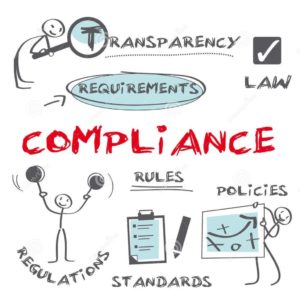Paralegals, the Public, & UPL
August 9, 2018The scope of services a paralegal is permitted to provide outside of a traditional law office is constantly morphing. The existence of virtual paralegals (like me!), rising costs of legal representation, and the persistent misunderstanding surrounding the concept of ‘paralegals’ (yes, 50 years as a profession and we’re still explaining ourselves!) has created a whirlwind of confusion.
Can a paralegal provide services to the public?
The short, but qualified, answer is no. Generally speaking, doing so is considered the unauthorized practice of law (“UPL”) and should be avoided like the plague. If only we could come to a consensus on the definition of UPL.
While there is not an all-governing definition of UPL, the ABA Model Rules provide direction, bar associations usually have a variation on the theme, and national paralegal associations have provided more clarity. For the most part, any paralegal worthy of the moniker agrees that UPL includes:
• giving legal advice
• accepting cases,
• setting fees,
• planning strategy
• making legal decisions
• taking depositions, and
• appearing in court
USLegal.com summarizes the definition as:
… engaging in the practice of law by persons or entities not authorized to practice law pursuant to state law or using the designations “lawyer,” “attorney at law,” counselor at law,” “law,” “law office,” “J.D.,” “Esq.,” or other equivalent words by any person or entity not authorized to practice, the use of which is reasonably likely to induce others to believe that the person or entity is authorized to engage in the practice of law in the state.
Perhaps it’s my lifetime of paralegaling, but the concepts of ‘practice of law’ and ‘legal advice’ have always seemed pretty straightforward to me.
What about LDPs (“legal document preparers”), LDAs (“legal document assistants”), state level registered paralegals, other special designation paralegals?
The states that have created those designations also have very clear and direct rules for what those paralegals may and may not do. But for very narrowly defined purposes, they are not authorized to answer questions of law or provide legal advice.
For the rest of us, why take the chance of ruining someone else’s life or losing your livelihood?
Think of it this way, would you, a paralegal, want to be responsible for telling a non-attorney the wrong thing thereby causing more harm than good? Would you want to risk disciplinary action or being a named defendant in a lawsuit because ‘you just wanted to help’?
Paralegals working independently, WITHOUT attorney supervision, aren’t covered by malpractice insurance and have little recourse if accused of providing incorrect ‘advice’ or just getting it wrong.
When (intelligent) non-attorneys call me ‘with a simple question’ or ‘for some advice’ because ‘they don’t really need/want to pay for an attorney,’ I explain that it’s worth the expense to hire a lawyer to get the job done right, then I direct them to find the links for self-help/pro se information on the court website, or suggest they contact legal aid or the local bar association. I won’t even read the content from one of those pages to the caller for fear they will think we’ve created a client relationship.
As Mariana Fradman put it, ‘Why do people ask paralegals to stand in as attorneys because of cost? Would those people ask a surgical nurse to perform surgery because they don’t want to pay for a doctor or hospital?’










August 10th, 2018 at 6:00 pm
Great article Pamela. We had a discussion during the recent NALA Ethics CP Review course about whether making a referral to a practicing attorney is legal advice. What is your take on that?
September 18th, 2018 at 3:35 pm
The short answer is a qualified no. To properly answer your question, I need to know what you mean by referral.